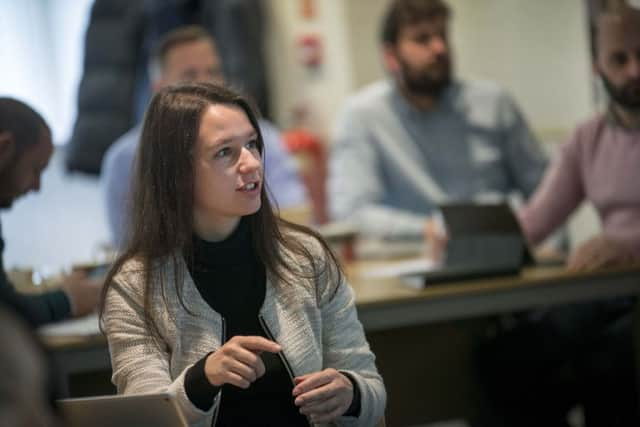Sponsored content: How a Leeds University Business School EMBA can change your life


Today, those periods of quiet reflection are even harder to find.
The relentless demands of social media and the target-driven approach to management have robbed many leaders of the space to ask fundamental questions. Why am I doing this? What does it achieve? Could we do it better?
Advertisement
Hide AdAdvertisement
Hide AdYou don’t have to be a poet or a dreamer to believe in the merits of stepping away from the hurly burly of business life to find a better way of managing your time and the people around you.
At Leeds University Business School, the Executive MBA course will give you the chance to study reflective practice, an innovative discipline that can help you to manage your emotions and ensure you have more productive relationships.
People take an MBA degree to acquire or hone some of the ‘hard’ business skills to help them to get ahead. Compulsory modules in subjects such as economics, management, finance, marketing and operations are an integral part of the MBA and highly valued by employers. But the ‘softer’ skills which MBA students gain can be just as useful in the long run.
Most of us will know and value senior staff who are good with people, and want to emulate them. The Leeds Executive MBA programme encourages students to think independently and use critical analysis and research. The business school gives students the skills they need to be able to think on their feet and respond appropriately in a demanding, fast-paced world.
Advertisement
Hide AdAdvertisement
Hide AdVince Dispenza, the director of executive MBA programmes at Leeds University Business School, said: “We are encouraging students to reflect on what they have done, in order to develop the skills and qualities needed to reflect, as they act, on the ‘here and now’.
“We do this with a structured reflective log, and ongoing discussion with an executive coach, and through structured action learning sets.”
Reflective practice is a respected management discipline. One of its biggest advocates was Reg Revans. His innovative approach inspired a number of management development programmes at the old National Coal Board.
As part of this process, each manager had the chance to learn from their colleagues so they could introduce new ways of working. It proved effective. The pits became more productive.
Advertisement
Hide AdAdvertisement
Hide AdThis is just the type of intelligent, measured approach to learning that students will be allowed to embrace at Leeds University Business School.
Mr Dispenza said: “We really draw on Reg Revans’ philosophy and principles, as well as his practical ideas on running action learning sets, for example ground rules about how people should behave: active listening, respecting and confidentiality etc. Revans described action learning sets as ‘development of the self by the mutual support of equals’.
He added: “We need others in order to develop. That is the central paradox of self development. Action learning sets help participants to hone reflective skills by harnessing the analytical capacity of a group focused on a problem or issue.
“It’s not just about gaining insight through new knowledge but also about developing the insight and confidence to be able to stick with difficult issues without feeling the need to rescue the person who’s struggling with the problem.
Advertisement
Hide AdAdvertisement
Hide Ad“In everyday life people often project their own solutions onto problems rather than attempt to find root causes.”
Mr Dispenza added: “Management is an action and outcome centred process. We often talk about action and reflection as opposites. For example, we use the phrase ‘stop and think’ as if the assumption is that we can’t do both.
“Our MBA explores this action and reflection relationship. The aim is to develop innovative managers who are not only able to reflect on their actions, but also on the effect they are having on others.”
After completing the course, Executive MBA students will be better placed to help colleagues achieve their potential. Action learning sets are an integral part of the EMBA programme. The programme also finds inspiration from the work of American psychologists Joseph Luft and Harry Ingham who developed a tool called the Johari Window.
Advertisement
Hide AdAdvertisement
Hide AdMr Dispenza said: “The same groups meet on several occasions over the two year duration of the programme. We also run a series of group action projects and students are encouraged to reflect on group process issues as well as task completion.
“At the end of each project, participants give and receive structured feedback to each other. We underpin this with the Johari Window model, and focus in particular on the ‘blind area’ - these are things others know about us but we are not aware of ourselves.
“A lot is spoken about lifelong learning, but what does that really mean? Gaining qualifications and badges? Surely it should be about resisting the temptation to believe that my interpretation and my experience are authoritative?”
Above all else, an Executive MBA should teach you to have an open mind.